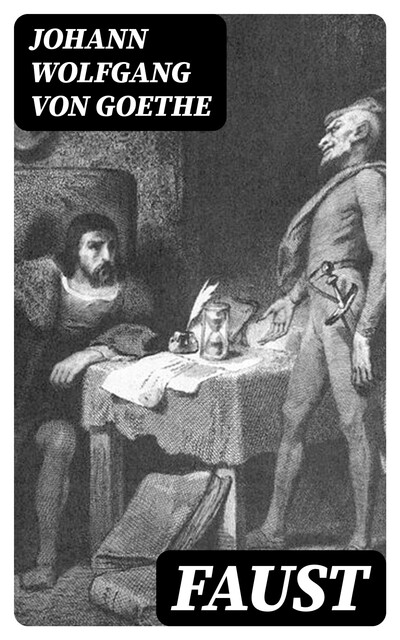Мы используем файлы куки, чтобы Bookmate и наши рекомендации работали лучше.
Подробнее на странице Политика Cookies
Подробнее на странице Политика Cookies
Принять все Cookies
Выбрать cookies
Johann Wolfgang von Goethe's “Faust” is a monumental exploration of the human condition, encapsulating the eternal struggle between good and evil, ambition and despair. Written in a poetic, dramatic style, it weaves together elements of German folklore, philosophy, and mysticism, presenting the protagonist, Faust, as a scholar who, disillusioned with conventional knowledge, makes a pact with the devil, Mephistopheles. This literary masterpiece, often hailed as one of the pinnacles of German literature, is set against the backdrop of the Enlightenment and Romanticism, reflecting the tensions of its era through rich symbolism and intricate characterization. Goethe's use of metaphysical themes and existential inquiries challenges readers to confront the complexities of desire and moral responsibility. Goethe, a key figure of the Sturm und Drang movement and later the Weimar Classicism, drew from his own experiences with despair, ambition, and the quest for meaning, deeply impacting his creative vision. His extensive studies in literature, science, and philosophy informed his portrayal of Faust, rendering it a deeply personal yet universally relatable narrative. As an influential cultural icon, Goethe's life was intertwined with the intellectual currents of his time, shaping his insights into the psyche and human relationships. “Faust” stands as an essential text for anyone seeking to grapple with the moral ambiguities and profound questions of existence. Its rich language and complex themes offer fertile ground for reflection and discussion, making it a compelling read for scholars, students, and casual readers alike. Engage with Goethe's timeless work to discover the depths of ambition, the pain of dissatisfaction, and the potential for redemption.
больше
729 бумажных страниц
- Правообладатель
- Bookwire
- Дата публикации оригинала
- 2022
- Год выхода издания
- 2022
- Издательство
- DigiCat
Другие версии книги
Уже прочитали? Что скажете?
👍👎
fb2epub
Перетащите файлы сюда,
не более 5 за один раз


